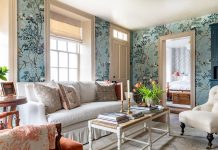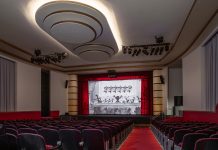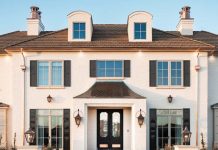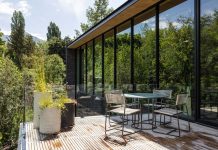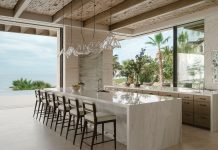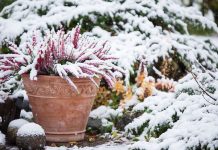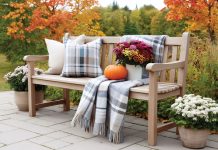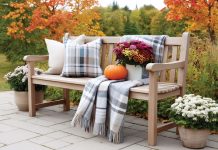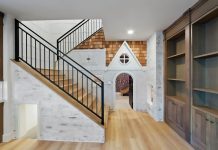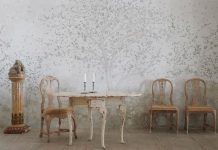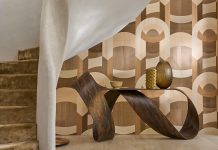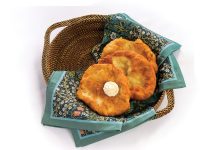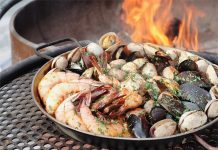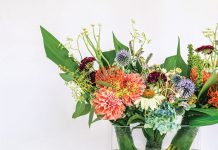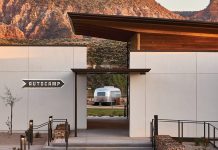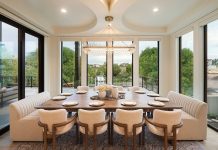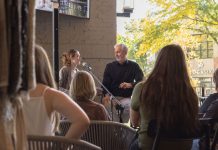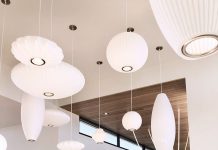Joshua Caldwell is a photographer who has contributed to our magazine, Salt Lake magazine, Phoenix magazine, Phoenix Home & Garden and The Perfect Bath. (Most recently, we published his jaw-dropping photos of a Holladay landscape in our summer issue.) Based in the Phoenix area, Caldwell has also shot in Utah, throughout the Mountain West and in Mexico. His wide range of clients include designers, builders, landscapers and architects. We talked with him about his career, his approach to photography and his unexpected favorite room to shoot.

USD: What inspired you to start interior and architecture photography?
Growing up, I was always building and creating things. Photography was not something that was really on my radar, although once in a while with a disposable camera I would try to make some interesting compositions. As I got a little older, I started meeting a few people who were taking art more seriously—painters, photographers—and so I started thinking, well, maybe there’s something I could do here.

In college, I started studying architecture, actually, up at the University of Utah. I didn’t excel at math, but the creative side I really excelled at. I started turning more to the design side, so I transferred over to the art program. One of my architectural design professors mentioned architectural photography, and I hadn’t really considered it before. Photography in general was a good fit for me because it seemed like a central hub in lots of different things that I was interested in. It’s utilized in painting and drawing, it’s utilized in film, it’s utilized in architecture and design. I could be part of the architectural process and then document it, and that really got me excited, because I didn’t want to give that up entirely.

USD: Along with photography, you have worked in other artistic mediums. Do you approach these projects differently? How has working in different art forms influenced your photography?
I have always been doing my own projects, my own fine art projects. It’s something that I’m always working on or thinking about.

Photography has ended up playing a really important role in those things. In fact, I have a hard time sometimes visualizing a painting—I actually have to have to sometimes take a photograph of the scene in order to set these boundaries and figure out my composition. The photograph becomes a useful reference for figuring out values and the tone of the painting. The biggest influence on me, outside of looking at other photographs, is paintings and drawings and seeing how things are composed and how light is captured and rendered.

USD: What else influences your photography?
I am an architectural photographer, but more importantly I identify myself as an artist. I actually use my Instagram a lot as a way to explore visual things. It could be color, it could be shape, it could just be something interesting that makes me stop and look at something, like the way a shadow falls across the grass or the way the sun was setting. I’ve had certain clients tell me, “We liked seeing that you were aware of your surroundings.” To me, that awareness is really important.
USD: How is light important to your photography?
Light is so important. I think one thing that makes an architectural photographer stand out is the ability to notice good light. Most importantly, it’s just having patience and pushing to wait for the good light.
I often come back to a scene. I’ll make a mental note of where a good composition is and think, “Well, the light might be better in three hours. So I’m going to come back and look here again.” Some of my strongest photographs have been from that process, where you’re not rushing it. With any good photographer, you’ll see that the light is the most important thing that they’re working with.
USD: What are some of your favorite projects?
One home in Scottsdale I was shooting in early September. The night before it had rained, so there was a good chance that it was going to be really wet, or it could still be cloudy and raining. But after the rain, the sky is often really clear—a lot of the smog moves out and you can have some really amazing light. When I woke up at 4 a.m. to drive there and catch the sunrise, I noticed the clouds starting to break up. The most amazing light came across the horizon. It streamed across the desert and everything was cool and beautiful, and it just created this amazing glow.
Another project I did for Jackson & Leroy. You often don’t get to really explore a project for multiple days—you may have a day or less, depending on the shoot and what the client wants. But this project was so wide and sweeping—it had lots of architecture, interiors and landscape design that we needed to consider. Initially, I spent two and a half days shooting the project. I could take time to explore and find compositions and see what the light is doing. I’ve also gone back and photographed some of the property for the actual homeowner, so in total I’ve spent about five or six full days on that project. I’ve never gotten to spend that much time in a place before. Just by walking around and noticing things, you really get connected to a place. It was a magical scenario to be working in; especially in the fall, with leaves all around it was very peaceful.
USD: We loved your recent shots of a Holladay landscape design featured in our summer issue. Your work often includes landscape design, architecture and interior shots. How do you approach a shoot differently for interior versus exterior photos?
The light is always important, no matter what: interiors, architecture, gardens, landscape. You have a little more flexibility with interiors. I want to have as much control as I can over what light is coming in certain windows. Most photographers never shoot anything during the middle of the day, but it can give you some nice light for interiors.

If I’m shooting exteriors and landscapes , I’m never going to shoot something at 1 in the afternoon. The light will be high contrast, uninteresting and harsh. I’ll use that time to scout for angles and shots, and when the light starts to come down, I’ll set up my camera and hone in my compositions.
USD: On a typical shoot, what equipment do you use?
I have multiple cameras that I utilize. I like to set a camera up, leave it, and record what’s happening. I use a Sony A7R II. I have a collection of tilt shift lenses that are great for architecture. They vary from wide angle to telephoto tilt shift lenses for different situations. Those help you with controlling the distortion and perspective. I have a carbon fiber tripod that I use 90% of the time, but I also have a collection of others if I need an extra one here or there. I have a camera support that goes up about 30 feet, which I’ve used a lot lately when the back exterior landscape slopes downward.
I have lots of little things that I’ve used over the years. I bring a carpet rake to take lines out of the carpet. I bring a leaf blower and lots of clips and tape. I carry three or four black, king-sized bed sheets if I need to block something out or kill a strange reflection. I always have that stuff ready to go.
USD: Do you have any pointers for designers on how to prepare their rooms for a shoot?
I want them to be focusing on accessorizing things: adjusting pillows, throws and accessories. I will adjust chairs and furniture to see how it looks in the camera and how it works with the composition.
What’s fun in this workin scenario is I may have a suggestion if they’re having trouble. And if they have an idea on composition, I say, “Hey, let’s try that!” You have to be willing on both sides to listen to each other and collaborate. The ultimate goal is to have the best photographs.
USD: Do you have a favorite space to shoot?
I actually really like to photograph bathrooms. I used to really struggle with them. They’re difficult to photograph because they are tight and sometimes the light can be really tricky to worth with. Over the years of trying to figure out how to shoot these spaces, I’ve learned how to light them in a way that feels natural. I like to be able to work within those restrictions. It’s kind of a smaller space, and I can focus on making this small space look as amazing as possible.

USD: I’ve got to say, I did not predict that you would say bathrooms!
I think they’re just fun, you know, because you work so hard in trying to conquer that struggle. I used to dread shooting them. You keep working at conquering that stuff and now it’s like, “I’ve done all the footwork. Now I can just have fun with it.”
USD: What is your favorite part of your job?
It can be stressful when you approach a project and there’s so many things that come into play. I’m working around the weather, the sun, maybe difficulty getting access to a project. Once all of those things are completed and you’ve conquered all of those challenges, the most rewarding part is then sitting down to edit the photographs. I’ve done all the really hard stuff. I’ve gotten up at sunrise. I’ve chased the sun around. I’ve walked 10 miles in a day shooting. It’s rewarding when I sit down at the computer and say to myself, “Wow, I’m really glad that I got up and went back at sunrise to shoot this scene again, because it already looks amazing and I haven’t even started editing.” I get to see how it’s come together, and that’s really rewarding.


